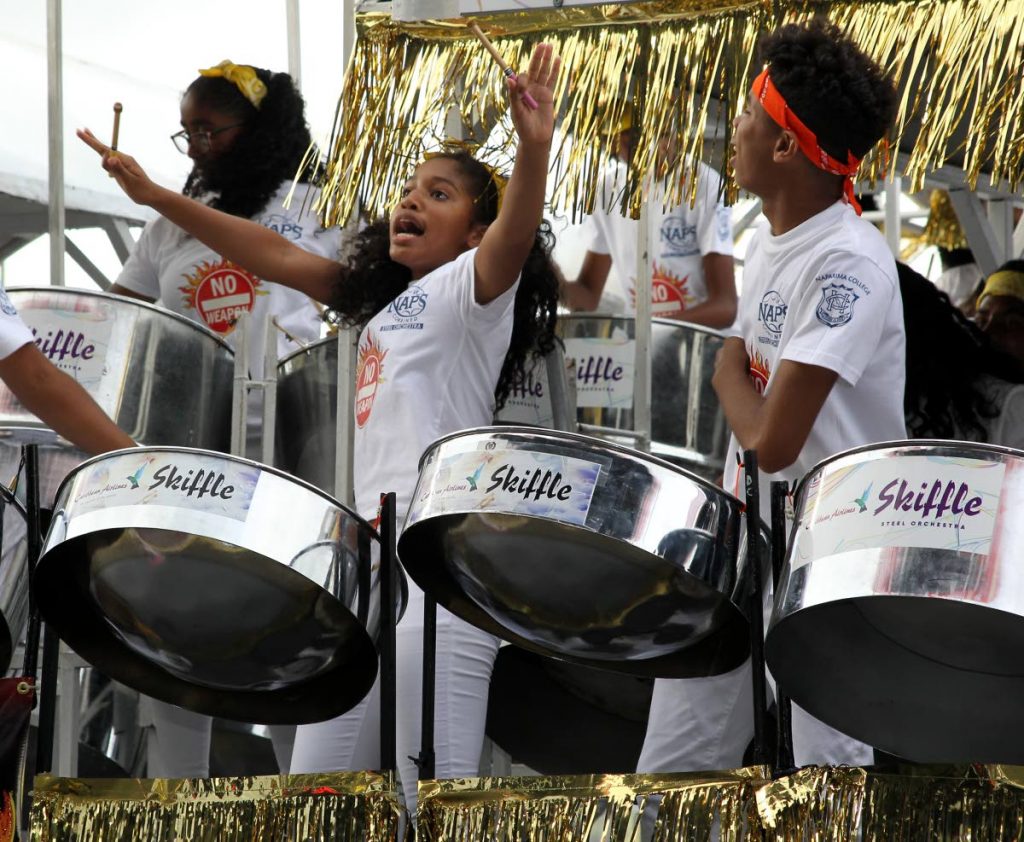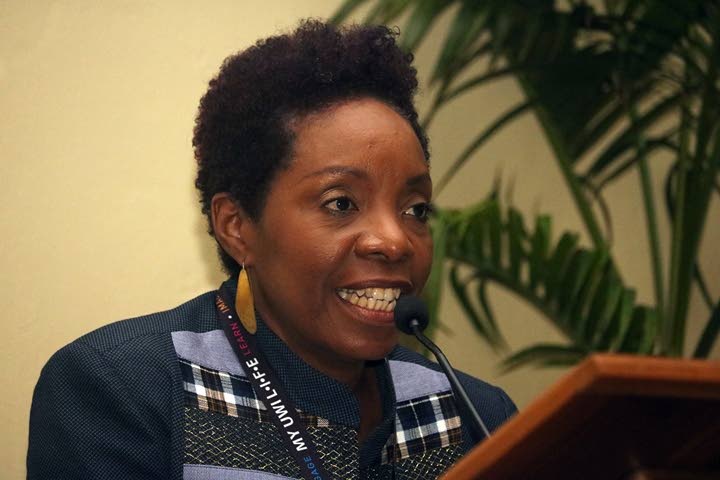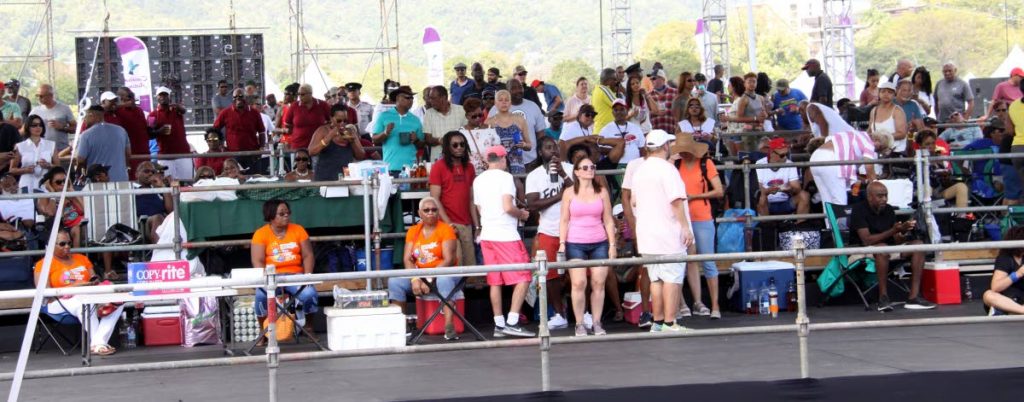Panorama 'deadin'

Since its inception in 1963, the Panorama competition remains one of Carnival's signature events.
But research has shown that the event must be revisited if it is to retain and build on its core audience – mature, die-hard pan lovers.
"What we were able to see is that the people who come to Panorama old. They born since Jesus was a foetus," said Dr Suzanne Burke, lecturer in Cultural Studies, UWI, St Augustine.
Specifically, Burke said the patrons who sit in the Grand Stand of the Queen's Park Savannah, Port of Spain are usually 60 and over while those who sat in what was known previously as the North Stand (now North Park) are between 35 and 50.
The Greens, the research showed, were the domain of the young people, many of whom do not even know the steelbands or their tunes of choice at any given time.
Burke said the audience impact assessment revealed the organisers of Panorama are losing their core audience, the people who pay $800 to sit in the Grand Stand to listen to the pan.
She said a strategy must be developed to move people to the Grand Stand and those from the Greens to the stands so they would at least hear the pan. (The Greens was discontinued by Pan Trinbago for this year's Carnival after scanty attendance in the previous two years).
"The bent out of shape thing is that the people who are playing pan are younger and younger. So, them eh even coming to see they friends who play pan."
She added: "So, young people are playing pan but young people are not consuming pan. This is a challenge."
Burke stressed research is a critical component in ensuring the extent to which festivals and other major cultural events survive in a society.
"It helps to determine your changing demographics and psychographics."

Burke was one of the speakers at the Tobago Heritage consultation symposium last Monday at Mt Irvine Bay Resort.
The event, hosted by the Division of Tourism, Culture and Transportation, sought strategies to preserve and enhance Tobago's tangible and intangible heritage. It also sought to document feedback on the process from the island's cultural stakeholders and activists.
Speaking on the topic, Enabling A Value Creating Economy for Tobago's Heritage Product, Burke used the Tobago Heritage Festival, held annually in July, as the focal point of her discourse.
She also gave strategies that could be used as a template by the organisers of festivals in Tobago to ensure their longevity.
Burke, whose work explores the domain of culture for economic and social transformation, said people attend festivals because of four main reasons: dynamism, sophistication, reputation and innovation.
Of the latter, she said: "So, festivals and change are really important. Everyday a new festival is being created but everyday a festival deadin.'"
Burke said the first reggae music festival, Sunsplash, which started in 1978, died because of lack of innovation.
She recalled that at the height of its success, the event attracted 10,000 foreign tourists, 120 foreign media and generated US$12 million.

"But it was plagued by what we call in literature, free riding. In other words, nobody wanted to give it money. They were making money, the government, the hoteliers, the taxi people. Everybody was making money from it but nobody wanted to give it money."
Burke said after being sold in 1994, Sunsplash was eventually discontinued in 1998.
She recalled it was replaced by Reggae Sunfest, which was owned by some Jamaican hoteliers.
"They financed their own thing, they scaled it and they grew it. So, now it is not just about people who singing reggae. They have all kinds of things going on there and it is making a lot of money."
Burke said the Barbados Jazz Festival, established in 1993 as a hallmark jazz event, attracted an estimated 6,000 people at the height of its success.
"But it gets to the point in the festival that if you don't do something with it, it dies. Is like it in the hospital on life support and the drips not helping. So, eventually, it was discontinued in 2010."
Burke added: "All I am saying is that festivals have a life cycle and like all products, you have to know what stage of the life cycle the festival is at and develop strategies to develop your festival."
Burke identified the main stages of festivals: the introductory period; growth, maturity; stagnation and rejuvenation.
She said some festivals would stay a longer time in different phases.
"But you have to identify at what point your festival is in."
Burke said the Tobago Heritage Festival already has a strong foundation on which it could develop.
She said it was time to focus on continuity.
"People already know the product and they now have to focus on future initiatives."
This, she said, may require some new blood "because you doing the same thing over and over again."
Burke added: "So, you want to be more anchored in the environment and you want to have some kind of consistency."
She said the festivals that survive are the ones in which the organisers intervene by "tweaking this and that.
"So that some festivals don't even go to the continuity or low phase because they are constantly regenerating."
Caption: Lecturer in Cultural Studies, St Augustine Campus, University of the West Indies Dr Suzanne Burke. (file photo)


Comments
"Panorama ‘deadin’"